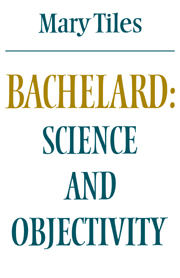Book contents
- Frontmatter
- Contents
- Editor's Introduction
- Preface (and Postscript)
- Acknowledgments
- Abbreviations
- 1 Philosophy of science: the project
- 2 Non-Cartesian epistemology and scientific objectivity
- 3 Non-Euclidean mathematics and the rationality of science
- 4 Non-Baconian science and conceptual change
- 5 The epistemology of revolutions – between realism and instrumentalism
- References
- Appendix: Biographical note
- Index
Preface (and Postscript)
Published online by Cambridge University Press: 14 November 2009
- Frontmatter
- Contents
- Editor's Introduction
- Preface (and Postscript)
- Acknowledgments
- Abbreviations
- 1 Philosophy of science: the project
- 2 Non-Cartesian epistemology and scientific objectivity
- 3 Non-Euclidean mathematics and the rationality of science
- 4 Non-Baconian science and conceptual change
- 5 The epistemology of revolutions – between realism and instrumentalism
- References
- Appendix: Biographical note
- Index
Summary
It is only fair that the reader should be warned that this book is not a work of definitive exegesis; it could not hope to be, given the gulf between the author's philosophical background and Bachelard's. The Bachelard who inhabits its pages is a rational construct. Bachelard himself, by producing texts on the philosophy of science, provided the materials for this construction. This was not a free creative act; it was contextually constrained, but not textually determined.
What could be the object of such an exercise? What justification can it be given? It is an attempt to confront the phenomenon which has been labelled the ‘incommensurability of scientific theories’, the phenomenon which has been perceived as a threat to the possibility of objectivity in science, and to do so at two levels. Most straightforwardly this is carried out by looking at the works of a philosopher of science who would appear to have resolved the problem. For although Bachelard recognises the phenomenon under the guise of discontinuity in the history of science, not only does he not see it as a threat to the possibility of rationality or objectivity in science, he sees it as a product of the rational processes of the advancement of science. But approach to this philosopher could only be made across a gulf similar in kind to that which exists between ‘incommensurable’ theories.
- Type
- Chapter
- Information
- Bachelard: Science and Objectivity , pp. xv - xxPublisher: Cambridge University PressPrint publication year: 1984



